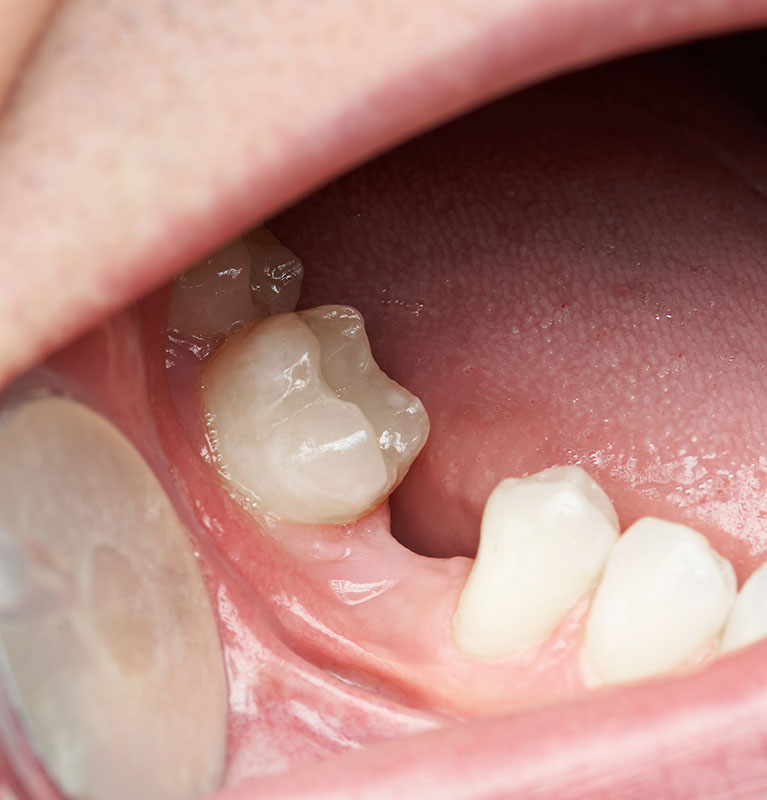Help With Failing, Missing, or Knocked-Out Teeth
A failing, missing, or knocked-out tooth involves a tooth becoming loose, damaged, or completely dislodged from its socket.
Often due to decay, infection, or damage, it may be loose or structurally compromised but still in place.
Completely absent from the socket due to trauma, extraction, or medical conditions.
Fully displaced from the socket, typically from injury or impact.
These are dental emergencies that require prompt care. In some cases, a knocked-out tooth can be saved. Treatment options may include reimplantation, implants, bridges, or dentures, depending on the damage and surrounding tissue.

What To Do If You Have A Failing, Missing, or Knocked-Out Tooth
The actions to take if you have a failing, missing, or knocked-out tooth can significantly impact your chances of saving the tooth. Here are the steps to take in each scenario:
Failing Tooth
If you suspect a tooth is failing due to decay or damage, see our dentist promptly. Maintain good oral hygiene by gently brushing and using mouthwash, and avoid chewing on the affected side to prevent further harm. Follow any care instructions provided by our dentist.
Knocked-Out Tooth
Act fast—time is critical. Handle the tooth by the crown, not the root. Rinse gently with milk or warm water without scrubbing.
Try to reinsert it into the socket and bite gently on gauze. If that’s not possible, store it in milk and seek emergency dental care immediately.
In any case of dental emergency involving a failing, missing, or knocked-out tooth, seeking prompt professional dental care is vital. Contact our dentist or visit a hospital emergency room immediately.

Failing Dental Implants
Dental implant failure occurs when an implant doesn't function as intended, either shortly after placement or years later.
Happens within months, often due to poor bone integration, infection, mobility, or fracture.
Occurs after initial success and may result from peri-implantitis, bone loss, mechanical issues, or systemic conditions like diabetes.
Other causes include poor oral hygiene, low bone density, smoking, teeth grinding, and improperly placed implants. Signs of failure include pain, swelling, implant movement, discomfort when chewing, gum recession, or infection. Treatment may involve antibiotics, adjustments, or surgical procedures like implant removal or replacement. Preventive care, good hygiene, and regular check-ups are key to long-term success.





